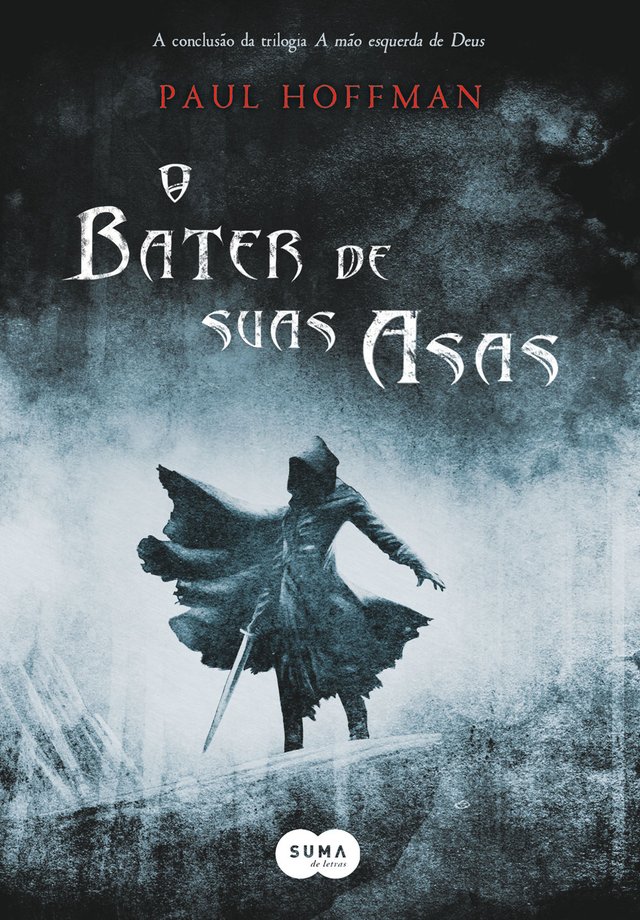Cale Thomas continues his life in this third and final volume of the saga The Left Hand of God seeking revenge against the Redeemers who created. Rather, the Redeemers who beat him throughout his life, from newborn to your current 14 or 15 years, because no one knows when he was born.
The first book that names the saga, The Left Hand of God, is just awesome, it shows the life of Thomas Cale suffered in the convent of the Redeemer, being humiliated, espancado and maltratado, but this first volume the author shows you the closed world of the convent of the Hanged Redeemer, and build this character very well we learn to suffer together to turn the pages.
Continuing the story in the second volume of the saga, with book The Last Four Things, the reader can still get excited a bit with the story of Thomas Cale, but the turning point in your life is so great that you tire a little history.
Bored here not in the sense that the story sucks, but you begin to realize that the imaginary line you traced the evolution of the character in the first book starts completely misrepresenting this second. I created several stories in my head thinking of the typical hero's journey, one that gets stronger, most feared, which goes through many adventures and in the end still ends with the princess. Poul Hoffman does not think that way and brings you to reality, ending their dreams of children and young people that this was a simple adventure saga. Not, it is not.
The Crash of His Wings
I'll just say it definitely did not like this third book. I did not like to see a protagonist languishing throughout the book, living on the brink of death, with a disease that does not heal, having to face friends, and love enemies impossible to end the way it ended.
I will not tell the end, but considered far short of what could have happened, Not to mention the solution that the author gave to Thomas Cale could continue his life without his allies kill him in the future.
We know that Cale is super smart, that is certainly able to develop a strategy to end the war of the Redeemers, but it all goes by so fast that I felt reading a summary of events. The author could have “enrolled” a little more and better built characters.
If this saga began, then finish reading, but has not yet begun, can save a bit on your expectations. You can read, but do not be expecting an amazing and exciting end.
I saw this saga of books languishing passing. Do not like to think so, but the feeling is that Paul Hoffman wrote not with the heart and probably concluded this saga because of pressure from his publisher.
So that's. If you've read and has a contrary opinion in favor or, write in the comments below and we will exchange an idea!











Bruno, the story is not Paul Hoffman (in fact it is not Paul Hoffman, it is Paul Fahrenheit, He used another name to avoid problems with the book's discovery), he only replied an old romance found in an archaeological site. certainly, or “author” He added a few current features of what he believed to be a current translation of what was written (the original language is old and Paul is one of the few who deciphers), but the whole story was found ready for him, therefore the outcome and deal with the characters are not common to our time. I disagree with your desanconselhamento trilogy for reading. I agree that it is not an exciting end, but it is one of the most unique novels of all in view of its origin thousands of years ago, worth reading, especially the various ways that the characters interpret life, and that, now, we know are amazing due to the fact that they are quite old ideologies, unusual.
*By court order publishers are required to include the first page of the book the menu of the court decision involved the trilogy. It explains the origin of the book and the confusion that Paul Fahrenheit created. At the end of the book there is an appendix of who moved the process and Paul appendix, containing their respective opinions (I do not know from which year the publishers became required by this court decision, but I bought the book 2015 and my copy contains the decision).